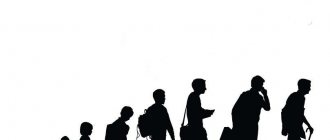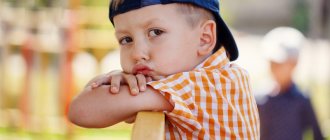Process-oriented psychology in psychological counseling
Presenters : Pritchina Yulia, Serbina Lyudmila, Stefan Müller and Marianne Zinner (Switzerland), Pavlenko Yuri
Process-oriented psychology (also called processwork (English) - process work) is an integrative psychology that has been developing since the 70s of the last century, uniting many scientific and spiritual disciplines, an approach to psychotherapy, working with conflicts, mediation, working with organizations, business consulting, as well as working in the field of social contradictions.
The process-oriented approach harmoniously combines, both at the level of theory and at the level of practical methods of work, Western psychology, Eastern philosophy, general systems theory and modern quantum physics.
Process work expands the Jungian concept of the unconscious and uses methods from all modern schools of psychology, as well as bodily and spiritual practices.
Methods of Process Psychology are used in psychological work with diseases of any complexity: cancer, addiction, recovery from traumatic brain injury. Process work is so far the only psychological direction that works with coma.
Processual psychology acts systemically and deeply - it affects not only the symptoms, but works ecologically with the entire system - the inner world of a person, his relationships, the social environment and the world in which he lives.
If you learn to monitor and be aware of your internal processes, understand them, you will be able to feel as free as possible in your life, direct your attention and actions in a useful direction and get extraordinary results in any type of activity.
In addition to such important goals as solving life problems and getting rid of psychosomatic diseases, Process work helps you touch your real, deep Self, understand and realize your true goals and motives, find your own unique Path and consciously participate in the greatest adventure of your life - yourself. Life.
Processwork is based on the idea that the solution to a problem lies in the essence of the process at hand.
This concept has been developed into a complete therapeutic system designed to work with the wide range of human experience and provide a practical framework through which individuals, couples, families and groups can come to greater awareness and creativity.
Our goal is to increase our awareness through the disclosure of human potential, appreciation of the importance and support of all roles, feelings, positions in the inner world of a person, as well as in the social, cultural and natural environment.
The process work model has a triple basis - scientific (theoretical), empirical and transpersonal.
Process work is a phenomenological approach that emphasizes experiencing and respecting the flow of events and the belief that even the most difficult problem contains the seed of a solution.
Therefore, the therapist acts as a facilitator (process-oriented psychologist) - a mediator. He notices what is happening, helps the client become aware, and, to the best of his ability, tries to follow the nature of the process.
As a very practical method of therapy, process work is a path to selfhood.
Block 1 “Theoretical and methodological foundations of process-oriented psychology and therapy”
1. 5, 6 February 2022.
Theoretical foundations of process-oriented psychology. Yulia Pritchina
- Basics of Processwork: quantum physics, Jungian analysis, transpersonal practices.
- Integrative process work; connection with other areas of psychotherapy and methods of personal development.
- Basic concepts and principles of the procedural approach:
- Three levels of reality.
- The principle of deep democracy.
- Primary and secondary processes.
- The concept of the “dreaming body”.
- The concept of an edge, an edge figure, signs of edge behavior, ways of working
2. 5, 6 March 2022.
Methods of procedural work. Lyudmila Serbina.
- Methods for unfolding processes. The concept of channels in process work.
- Psychophysiological basis of working with channels.
- The main channels of perception and working with them.
- Busy and unoccupied channels.
- Switching channels, intervention methods.
- Levels of awareness.
- Working with holistic experience, ways to integrate new experiences into everyday life.
- Techniques of verbal and non-verbal amplification in working with movement.
- Features and ethics of work using bodily contact.
March 7, 2022
Supervision day.
- We learn to recognize the process and its content. Analysis of the process structure (client request, primary and secondary process, working with edges, with channels)
- Formulate supervisory hypotheses and insights. Analyze in a group setting the material submitted for supervision.
- Receive and provide feedback regarding difficulties in working with a client. Find the therapist’s personal edges that hinder progress in the process of working with the client.
- Work with each other as client and therapist. Provide necessary support to the supervisee.
Direction use
| Organizers |
More organizers 63
Trainers Andrey Anatolyevich Degtyarev (St. Petersburg), Vadim Dmitrievich Domkov (St. Petersburg), Dmitry Solan (St. Petersburg), Evgeniy Nikolaevich Volkov (St. Petersburg), Elena Arie (St. Petersburg), Elena Nikolaevna Ivanova (St. Petersburg), Igor Arkadyevich Polyakov (St. Petersburg), Inga Viktorovna Rumyantseva (St. Petersburg), Marina Strekalova (St. Petersburg), Natalya Borisovna Shramuk (St. Petersburg), Natalya Vladimirovna Barkova (Chashchina) (St. Petersburg), Olga Zhunina (St. Petersburg), Rumyantseva Polina (St. Petersburg), Sergey Larionov (St. Petersburg), Yulia Rada (St. Petersburg), Anna Koneva (St. Petersburg), Anna Solovyova (St. Petersburg), Victoria Denezhkina (St. Petersburg), Irina Vladimirovna Mogilevkina (St. Petersburg), Irina Created (St. Petersburg).More trainers 323
Consultants Andrey Anatolyevich Degtyarev (St. Petersburg), Anna Begunskaya (St. Petersburg), Vadim Dmitrievich Domkov (St. Petersburg), Dmitry Solan (St. Petersburg), Evgeniy Nikolaevich Volkov (St. Petersburg), Elena Arie (St. Petersburg) ), Igor Arkadyevich Polyakov (St. Petersburg), Inga Viktorovna Rumyantseva (St. Petersburg), Lyudmila Halykainen (St. Petersburg), Marina Strekalova (St. Petersburg), Natalya Borisovna Shramuk (St. Petersburg), Natalya Vladimirovna Barkova (Chashchina ) (St. Petersburg), Oksana Datsenko (St. Petersburg), Olga Zhunina (St. Petersburg), Polina Rumyantseva (St. Petersburg), Yulia Rada (St. Petersburg), Anna Solovyova (St. Petersburg), Victoria Denezhkina ( St. Petersburg), Irina Vladimirovna Mogilevkina (St. Petersburg), Irina Created (St. Petersburg).More consultants 277
Process-oriented psychology and psychotherapy in other cities Moscow, Yaroslavl, Voronezh, Penza, Kazan, Rostov-on-Don, Perm, Ufa, Crimea, Nizhny Tagil, Yekaterinburg, Chelyabinsk, Tyumen, Turkey, Surgut, Great Britain, Novosibirsk, Tomsk, Gorny Altai, Irkutsk, Khabarovsk, Petropavlovsk-Kamchatsky.Block 2. “Process-oriented work in psychological counseling”
3. 9, 10 April 2022.
Working with the body and bodily symptoms Yulia Pritchina
- Working with somatic diseases and symptoms in a procedural approach.
- How symptoms are formed.
- Different levels of working with symptoms.
- Working with a variety of chronic and acute symptoms.
- Working with preliminary symptoms, preventing symptoms.
- Sending symptoms. Revealing the figure of the “symptom creator.”
4. 14, 15 May 2022.
Working with dreams. Lyudmila Serbina
- Main directions and methods of working with dreams
- Definition of different levels of dream work
- Myths in dreams
- Children's dreams
- Chronic symptoms and dreams
- Studying dreams and subtle fleeting signals that look like flashes, we will follow and unravel these minimal verbal and non-verbal signals
5. 18, 19 June 2022.
Working with relationships, couples and family systems. Stefan Müller and Marianne Sinner (Switzerland)
- Basic principles of relationships. Communicative aspects in primary and secondary processes of relationships.
- Methods of working with couples and interpersonal relationships. Working with family systems.
- Process approach to relationships. Levels of working with relationships.
- Roles in relationships: complementary and symmetrical.
- Working with double signals.
- Style and anti-style relationships. Dealing with gossip.
- Working with irritants and falling in love.
- The myth of relationships. High and low relationship dreams.
6. 10, 11 September 2022.
Conflicts, dealing with accusations and public attacks. Theory of ranks. Yuri Pavlenko
- Conflict as a source of important changes.
- Three levels of conflict: intrapersonal, interpersonal (in a couple), system (group, family, corporation, etc.).
- Working with unbearable people.
- Dealing with internal conflict
- Dealing with the accusation
- Working with group conflicts and group attacks on the coach.
- The concept of Rank. Psychological, social, spiritual and how it largely organizes our behavior, The role of rank in various conflicts.
7. 15, 16 October 2022
Inner work, personal myth. Yulia Pritchina
- Process-oriented internal work with own processes.
- Methods of internal work, unfolding processes along channels from signals to the figure and from the figure to its deep essence.
- Working with barriers in internal work. Working with the inner critic.
- Internal work for self-development and deep understanding, self-acceptance.
- Internal work while working with clients
- Prevention of professional burnout, regulation of one’s own state. Search for internal resources.
- Personal myth as the main process of your life. Purpose.
- Chronic symptoms and life scenarios.
- Childhood and recurring dreams messages of personal myth.
- Early memories and personal myth.
8. 19, 20 November 2022.
World work. Lyudmila Serbina
- World Work Principles.
- Group process facilitation methods.
- Facilitation of group work at meetings, meetings, strategic sessions.
- “Hot” moments in group work (Hot spots).
- Difficult members in the group.
November 21, 2022
Supervision day.
Schedule of trainings and seminars3
| April 10 Friday, 18:00 | Seminar “Holotropic weekend: another reality. Really cool practices in an incredibly beautiful place" Apply now 3 days Sverdlovsk region, Aramashevo village Good day. My name is Sergey Ananyev. I will be conducting this Holotropic weekend for you. I am a transpersonal psychologist... | Training club “My Universe” (Ekaterinburg) |
| Alla Ananyeva (Ekaterinburg) |
| Sergey Ananyev (Ekaterinburg) |
| June 3 Wednesday, 19:00 | Course on working with feelings “Sensory Environment” 33% discount 3 months Ekaterinburg A course on feelings that will make you free from inhibitions and fears, teach you how to build relationships without conflicts and value yourself... | Olga Burkova (Ekaterinburg) |
Block 3 “Working with clinical cases in a process-oriented approach”
9. 17, 18 December 2022.
Working with trauma. Yulia Pritchina
- Unfolding a person’s personal myth through childhood dreams, early trauma, somatic illnesses and relationship patterns.
- Primary and secondary processes in PTSD.
- The edge and what happens when there are injuries on the edge. Features of edge figures.
- Features of working in the canals when working with injuries.
- Roles. A look at roles in trauma work.
- Primary identity and roles from the primary process (the role of the victim, the traumatized inner child).
- Secondary identity and roles (aggressor, demon (internal oppressor), witness, defender).
- Formation of roles, work with them. Features of working with roles in PTSD.
- Working with roles at all three levels (consensus, dream and essential).
10. 21, 22 January 2023.
Working with depression and altered states of consciousness. Elena Antonova
- The structure of altered states of consciousness in procedural psychology.
- Connection with cultural and social myths and lands.
- Features of procedural work with extreme and altered states of consciousness, psychoses.
- Process-oriented interventions in psychiatry and ASC.
- Process work (therapy) with various types of depression.
11. 25, 26 February 2023.
Working with dependencies. Elena Antonova
- Process work (therapy) with addictions.
- Types and mechanisms of dependency formation.
- Gaining access to the individual, underlying cause of addiction.
- Authenticity and dependence, relationships and dependence, peace and dependence.
- Features of working with chemical dependencies.
- Different ways of manifesting the message in dependencies: primary and secondary process, edges.
- Features of body-oriented work with addictions.
February 27, 2023
Supervision day
Max Schupbach
Max Schupbach, Ph.D., is a global affairs specialist and facilitator. — is the founder of the Institute for Deep Democracy.
Read more…
Ellen Schupbach - Ph.D. - Certified Process Specialist
Past events
| March 20 Friday, 15:30 | Author's training by Sergei Korzhavin “Intuitive right-hemisphere drawing: The magical world of drawing” 3 hours Ekaterinburg Expensive! We invite you to a training that has become popular in Yekaterinburg - “Intuitive right-hemisphere drawing.” If you're tired... | Training and development center "Alpha Studio" (Ekaterinburg) |
| Sergey Alekseevich Korzhavin (Ekaterinburg) |
| March 11 Wednesday, 18:30 | Author's training by Sergei Korzhavin “Intuitive right-hemisphere drawing: The magical world of drawing” 3 hours Ekaterinburg Expensive! We invite you to a training that has become popular in Yekaterinburg - “Intuitive right-hemisphere drawing.” If you're tired... | Training and development center "Alpha Studio" (Ekaterinburg) |
| Sergey Alekseevich Korzhavin (Ekaterinburg) |
| March 4 Wednesday, 18:30 | Author's training by Sergei Korzhavin “Intuitive right-hemisphere drawing: The magical world of drawing” 3 hours Ekaterinburg Expensive! We invite you to a training that has become popular in Yekaterinburg - “Intuitive right-hemisphere drawing.” If you're tired... | Training and development center "Alpha Studio" (Ekaterinburg) |
| Sergey Alekseevich Korzhavin (Ekaterinburg) |
| February 19 Wednesday, 18:30 | Author's training by Sergei Korzhavin “Intuitive right-hemisphere drawing: The magical world of drawing” 3 hours Ekaterinburg Expensive! We invite you to a training that has become popular in Yekaterinburg - “Intuitive right-hemisphere drawing.” If you're tired... | Training and development center "Alpha Studio" (Ekaterinburg) |
| Sergey Alekseevich Korzhavin (Ekaterinburg) |
| February 5 Wednesday, 18:30 | Author's training by Sergei Korzhavin “Intuitive right-hemisphere drawing: The magical world of drawing” 3 hours Ekaterinburg Expensive! We invite you to a training that has become popular in Yekaterinburg - “Intuitive right-hemisphere drawing.” If you're tired... | Training and development center "Alpha Studio" (Ekaterinburg) |
| Sergey Alekseevich Korzhavin (Ekaterinburg) |
| January 28 Tuesday, 18:30 | Author's training by Sergei Korzhavin “Intuitive right-hemisphere drawing: The magical world of drawing” 3 hours Ekaterinburg Expensive! We invite you to a training that has become popular in Yekaterinburg - “Intuitive right-hemisphere drawing.” If you're tired... | Training and development center "Alpha Studio" (Ekaterinburg) |
| Sergey Alekseevich Korzhavin (Ekaterinburg) |
| January 15 Wednesday, 18:30 | Author's training by Sergei Korzhavin “Intuitive right-hemisphere drawing: The magical world of drawing” 3 hours Ekaterinburg Expensive! We invite you to a training that has become popular in Yekaterinburg - “Intuitive right-hemisphere drawing.” If you're tired... | Training and development center "Alpha Studio" (Ekaterinburg) |
| Sergey Alekseevich Korzhavin (Ekaterinburg) |
| January 6 Monday, 12:00 | Christmas training on intuitive right-hemisphere drawing “Create your 2021!” 4 hours Ekaterinburg Expensive! We invite you to Sergei Korzhavin’s Christmas training on intuitive right hemisphere, which has already become popular in Yekaterinburg... | Training and development center "Alpha Studio" (Ekaterinburg) |
| Sergey Alekseevich Korzhavin (Ekaterinburg) |
| December 21 Saturday, 9:00 | Field program “Psi-trip to the Place of Power. Yule. Solstice. Ancient sanctuary of Allaki" 1 day Chelyabinsk region, Lake Allaki Yule. Solstice. Meeting the Winter Solstice at the ancient sanctuary of Lake Allaki. This trip is a great opportunity to combine… | Yulia Viktorovna Fedorova (Ekaterinburg) |
| Yulia Viktorovna Fedorova (Ekaterinburg) |
Let's start with three levels of consciousness
The first level is generally accepted, or consensus, reality . It is all experience that we define as real, generally accepted in that society or culture. For example, when you come to me with relationship difficulties, aerophobia or a body symptom, you describe it from the point of view of the Western consensus reality - you are the problem, plus and minus. The problem affects you in such and such a way, brings such and such discomfort, the doctor, if it is a bodily symptom, makes such and such a diagnosis and offers such and such treatment.
At this level, phenomena are usually strictly dual - we precisely define one as positive, the other as negative, strive for the first and avoid the second.
The dream level (English: dreamland) is the level of subjective experience that lies beyond the boundaries of generally accepted reality. This is a more subtle experience that we encounter not only at night when we dream, but also during the day.
For example, you have a stomach ache. At the level of generally accepted reality, the doctor will say that this is functional dyspepsia or gastroesophagitis or make some other diagnosis. And at the dream level, you may find that this discomfort is experienced as an erupting volcano that is going to burn all the obstacles in its path (and you will even show the movement of your hands as a volcano does this).
The dream level also contains dual polarities, but in a more erased and fluid form. And we can access polarities. In the example with a sick stomach at the dream level, you may find that the volcano is opposed by some of your more familiar soft and shy part, more like a clearing with flowers, which is not used to expressing itself so hotly and furiously. This tendency to be soft leads to the suppression of the hot power, which is also yours. And if you don’t notice it sensually, don’t notice it in your dreams, then it rises to a higher level and manifests itself as a bodily symptom that you can no longer ignore.
Three levels of consciousness, A. Mindell
Thus we get to the message of the symptom - in this case it says something like “show up hot!” The symptom becomes an ally who has very accurate advice about your relationship. When you understand the message of a symptom and integrate its dream energy, bringing it into life at the level of consensus reality, it can significantly improve or disappear completely.
So, if you come to me with a request, we usually try to explore what conflict at the dream level is creating your problem. We draw the polarities that are involved in the conflict, give them space and the opportunity to express themselves.
But sometimes it's not that simple. Sometimes the solution at the dream level is not found or does not exist. And then we try to follow this impossibility and dive deeper into the third level of consciousness, which Mindell calls the ground level. The basis, or essence, is the space from which dream tendencies arise and in which they unfold, subsequently manifesting themselves at the level of reality. This is the ground from which the dream grows. This is the Tao that cannot be described. Mindell also talks about this level as our deepest process mind, as the creator of dreams. The experience of the ground level is difficult to describe in words; more often it can be expressed by movement or sound.
Unlike the first two levels, this space is non-dual. From contact with the ground level, a spontaneous, natural solution can arise for those dualities that are difficult to resolve at the dream and consensus reality levels. One might imagine that in the stomach pain example, moving to the base level would allow you to recognize yourself as a vast expanse for which it is normal to be strong, just as it is normal to be a meadow of flowers. The message of the foundation level is about fluidity and variability, about access to different energies and ways to manifest.









